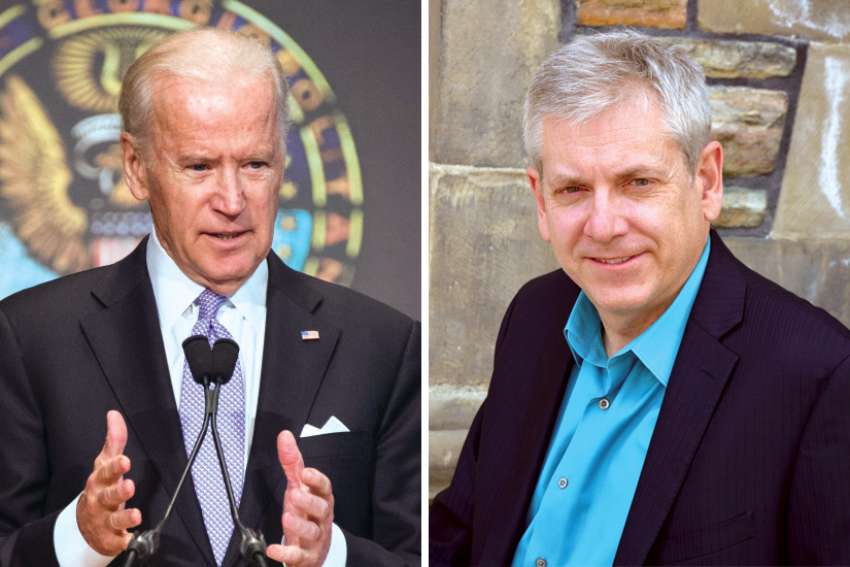As Biden presented himself to receive communion, the pastor’s public refusal at St. Anthony Church in South Carolina on Oct. 27 most certainly politicized the Eucharist and appears to fly in the face of Pope Francis’ famous Amoris Laetitia footnote that the Eucharist “is not a prize for the perfect, but a powerful medicine and nourishment for the weak.”
Fr. Robert Morey defended his actions in a statement: “Holy Communion signifies we are one with God, each other and the Church. Our actions should reflect that. Any public figure who advocates for abortion places himself or herself outside of Church teaching.”
As reported last week in The Register, Morey’s decision comes from Canon 915 of the Code of Canon Law which states that Holy Communion should not be given to those excommunicated or interdicted, and those “who obstinately persist in manifest grave sin.”
Although Biden is on record as saying he believes government should leave the decision on whether to abort to the mother, some argue Canon Laws 18 and 912 supersede 915 in this case. In other words, denying the former vice-president communion is not cut and dry.
Indeed, Biden’s home diocese — the Diocese of Wilmington, Delaware — issued a statement saying: “The Church’s teachings on the protection of human life from the moment of conception is clear and well-known.”
But Wilmington Bishop W. Francis Malooly has “consistently refrained from politicizing the Eucharist and will continue to do so.
“His preference, as with most bishops, is to interact with politicians individually who disagree with significant Church teachings.”
Soon after the latest U.S. “wafer wars” news broke, it crossed into Canada with Timmins-James Bay NDP Member of Parliament Charlie Angus posting across social media about a similar experience he had when he was a rookie MP. His case involved the same-sex marriage bill before Parliament.
“In 2005, the Diocese of Timmins declared they would deny me communion and have me defeated in the coming election if I did not change my support for same-sex marriage. I was newly elected and was soon to face the voters (again) in a largely Catholic/Francophone region where I had just won by a relatively small margin,” Angus wrote.
“The threat of denying me communion had a huge effect on my family. I had grown up in the Church. I ran a choir, organized a youth group and had learned many of the values of social justice and solidarity with the poor through the Church. I knew that, in standing up for the rights of same-sex couples, nothing would be the same for me again.”
Angus was also a former Catholic school board trustee and, according to media reports at the time, he was denounced from the pulpit and the local bishop issued a press release promising to help defeat him in the next election, which turned out to be the very next year, 2006.
Despite this, and with the support of his strong Catholic family, including aunts who are nuns, Angus easily won re-election and is today one of the longest serving MPs.
“I was deeply moved by the amazing support I received from gay people, from ordinary Catholics, from clergy and the people I met door-knocking in the election that came soon after. I didn’t bow to the pressure and the Catholic vote came home for our team in big numbers,” Angus wrote on Facebook.
“My advice to politicians who are being threatened by right wing clergy — don’t bend, don’t bow, do the right thing,” he said.
Incidentally, in 2014, almost 10 years later, Angus told the Ottawa Citizen that he has never returned to the church where he was denounced. But he remains a practising Catholic. A request for an interview was made to Angus’ office, but to no avail.
It’s time to heed to the Holy Father’s wishes in treating the Eucharist as nourishment, not a prize for the perfect. And let’s stop using the Eucharist as a weapon against Catholic public officials. It’s in nobody’s interest.
As the National Catholic Reporter wrote after the most recent Eucharist incident, “If the goal was to turn the Catholic Church into an arm of the Republican Party and to cause left-leaning Catholics to find something else to do on a Sunday morning, the approach has succeeded.”
We believe in one holy catholic and apostolic Church, not a Church divided by politics from the right or the left.
(Brehl is a Toronto writer and author of many books.)


